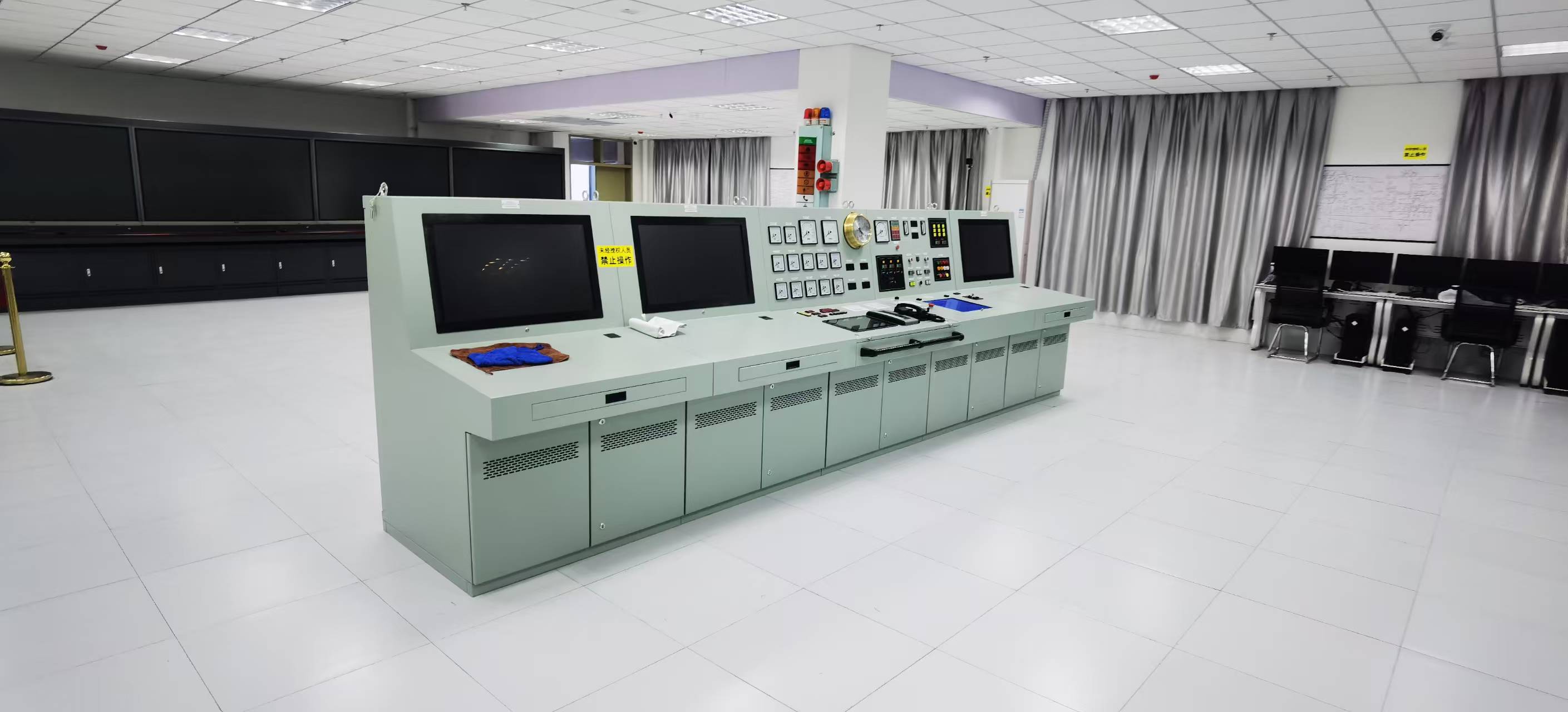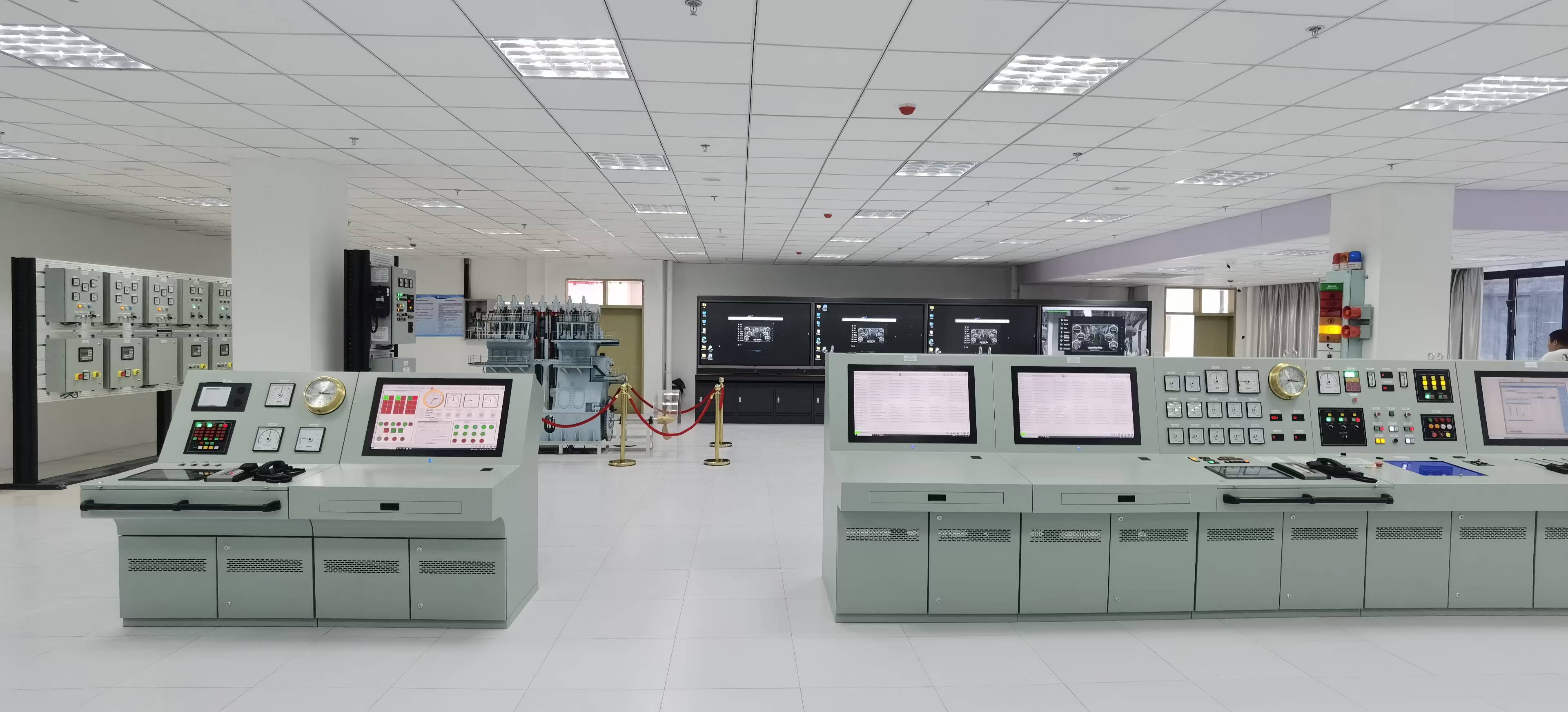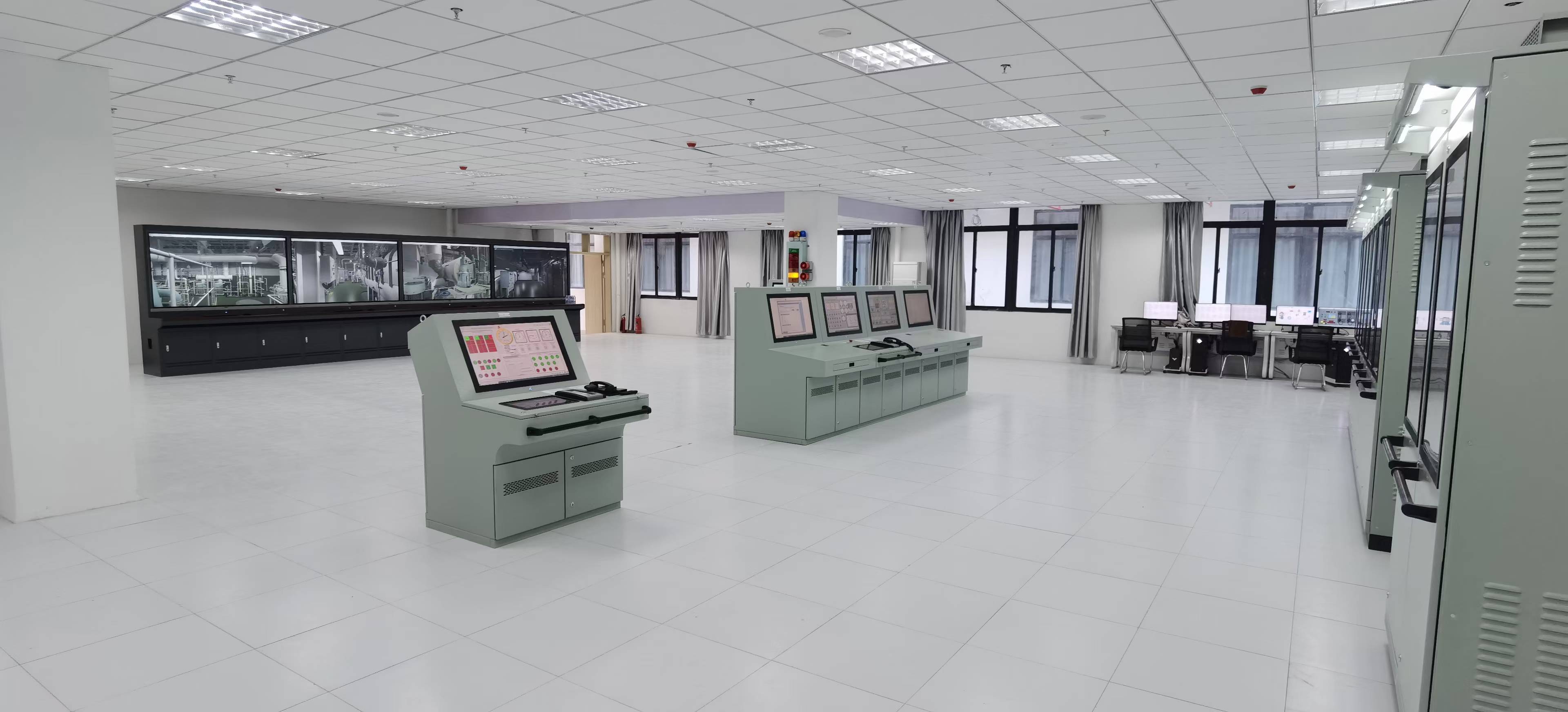40px
80px
80px
80px
Product Details
The Hefonix-New Fuel Marine Engine Room Simulator is a specialized engine room training platform for new energy vessels (such as LNG, methanol, and hydrogen) and dual-fuel vessels. It is dedicated to creating a high-precision, highly realistic, and fully controllable engine room training environment.
By integrating hardware simulation, software modeling, and immersive interaction, it provides maritime schools, shipping companies, and crew training institutions with a risk-free, efficient, and highly transferable program for developing engine room operations and emergency response capabilities. This program helps trainees complete the entire process from theoretical understanding to practical application in a virtual environment, significantly reducing the risks and costs of physical training and significantly improving crew member skill attainment.It offers:
-Full-process simulation of new fuel ship power systems;
-Operation and management of new fuel ship power plants;
-Comprehensive training on multiple engine room systems in new fuel ships;
-System linkage and emergency scenario simulation in new fuel ship engines.

Core training functions and scenario coverage
Designed with the concept of "full system simulation, full process coverage, and full-scenario linkage," this simulator deeply replicates the physical characteristics, system logic, and operational specifications of the engine room of a new fuel vessel, supporting multi-dimensional, progressive training. Specifically, it includes:
(I) Full-Process Simulation of the New Fuel Ship Power System
-Simulation Scope: Covers the entire dynamic chain from fuel storage (e.g., LNG tanks, methanol fuel tanks), fuel processing (purification, pressurization, and gasification), engine combustion (dual-fuel injection, ignition control), to power output (propulsion shafting and propeller loads). It supports the simulation modeling of low-speed two-stroke and medium-speed four-stroke dual-fuel engines, as well as new energy power units (e.g., fuel cells and battery energy storage systems).
-Technical Features: Utilizing a multi-physics coupled simulation engine (integrating thermodynamics, fluid mechanics, and control theory), the dynamic response characteristics of key parameters (e.g., fuel flow, cylinder pressure, and exhaust temperature) are ≤5% accurate compared to the actual vessel. It can simulate system dynamic behavior under various fuel switching conditions (e.g., diesel to LNG, methanol to diesel), load fluctuations, and environmental conditions. - Training Value: Participants can understand the impact of fuel characteristics (such as LNG's cryogenic properties and methanol's corrosiveness) on power system operation, understand the inherent relationship between "fuel, combustion, and power," and enhance their ability to optimize power system operation and manage energy efficiency.
(II) Power Plant Operation and Management on New Fuel Ships
- System Coverage: Simulates the coordinated operation logic of the ship's main power plant, emergency power plant, power distribution system, and critical loads (such as steering gear, refrigerated tanks, and navigation equipment).
- Core Operation Training:
* Generator set start-up and shutdown, grid connection/de-connection operations;
* Dynamic power plant load distribution;
* Voltage/frequency stability control;
* Fault handling.
(III) Comprehensive Training for Multi-System Engine Rooms on New Fuel Ships
- Multi-System Collaborative Simulation: Integrates core engine room systems, including the propulsion system, fuel supply system (refueling module), auxiliary systems, and safety systems, achieving physical linkage and logical coupling between these systems. - Comprehensive Operational Scenarios: Simulates multi-system coordinated operations under typical ship operating conditions, such as engine room management throughout the entire "departure-en route-entry" voyage, and system stability control under extreme weather conditions, cultivating students' comprehensive engine room management capabilities from a holistic perspective.
(IV) Engine Room System Interaction and Emergency Scenario Simulation for New Fuel Ships
- Emergency Scenario Library: Covers typical high-risk emergency scenarios for new energy ships, including:
* Fuel System Failures: LNG tank leaks, methanol fuel pump jams, and hydrogen fuel line ruptures;
* Power System Failures: Main engine runaway, turbocharger failure, and excessive shaft vibration;
* Safety Incidents: Engine room fires (electrical fires, fuel gas cloud explosion risks), gas detection alarm activation, and malfunctioning of the Emergency Shutdown System (ESD);
* External Emergencies: Fuel tank damage caused by collisions and flooding of the engine room after grounding. - Emergency response training: Based on the IMO International Fire Safety System Code (FSS Code) and ship emergency plans, trainees are guided through the standardized emergency process of "alarm identification - risk assessment - response decision-making - operation execution - effect verification", such as the "source shutdown - ventilation and dispersion - concentration monitoring - repair and isolation" steps after a fuel leak, to enhance emergency response speed and handling standardization.

Product Configuration and Deployment
To enhance training realism and deepen trainees' understanding of new fuel ship engine room systems, this system is equipped with the following hardware and software features. Each system utilizes a distributed deployment, allowing for flexible configuration based on your needs:
-Simulated main engine;
-Simulated power plant;
-Central control console;
-Navigation control console;
-Engine-side control console;
-Auxiliary control box;
-Supporting new fuel ship engine room system simulation software (for desktop-based teaching).
- A MR liquid fuel filling simulation training system can be flexibly configured according to your needs. Developed based on virtual reality technology, trainees can select tools using a joystick and complete the entire liquid fuel filling process, supporting hardware integration.
The Hefonix-New Fuel Ship Engine Room Simulator combines "new fuel ship engine room simulation + immersive training + data-based assessment" to provide a high-precision, risk-free simulation training scenario. It complies with the "competency assessment items" and "capability for continuous demonstration of proficiency" requirements of the International Maritime Organization (IMO) Convention on Standards of Training, Certification and Watchkeeping for Seafarers (STCW) (78/95), enhancing your skills and shortening your time to employment.

We offer one-stop supporting services
-Pre-sales services: We provide needs analysis, solution customization, product demonstrations, training planning, and other services to meet your customized needs.
-In-sales services: We offer customized production and R&D (if applicable), installation and commissioning, site adaptation, operator training, and document delivery. We ensure the delivery of high-quality products for your peace of mind.
- After-sales service: 1-year free warranty (including hardware replacement and software upgrades), 24/7 technical response, lifelong system optimization suggestions, and assistance at any time.
About Us
As a global innovator in maritime simulation technology,Hefonix is dedicated to providing cutting-edge simulation training solutions to maritime, nautical, and related professional schools and institutions. Our team of 50+ professionals specializes in simulation technology R&D, maritime industry applications, and educational design. Guided by the principle of “flexible response to needs and innovative problem-solving,” we refuse to be bound by traditional standards and, through immersive simulation technology, make crew training more engaging, safer, and more realistic.
Our vision is clear and unwavering: unlock exclusive training modules and expand your training beyond traditional boundaries!
The new dual-fuel engine room simulator is designed to create a realistic, safe, and efficient engine room simulation training environment. It is suitable for business scenarios such as competency training and assessment for dual-fuel vessel crew members and skills development for in-service engineers. It covers safety training, emergency drills, and practical fuel bunkering exercises from training to certification, helping to master low-flashpoint fuel handling procedures.
MoreThe Hefonix-Fueling dual-fuel engine room and liquid fuel bunkering simulator is dedicated to providing a professional, realistic, safe, and efficient dual-fuel engine room training environment. Dual-fuel crew members can complete safety training, emergency drills, and practical fuel bunkering exercises in a risk-free environment, reducing training costs and improving training effectiveness.
More40px
80px
80px
80px